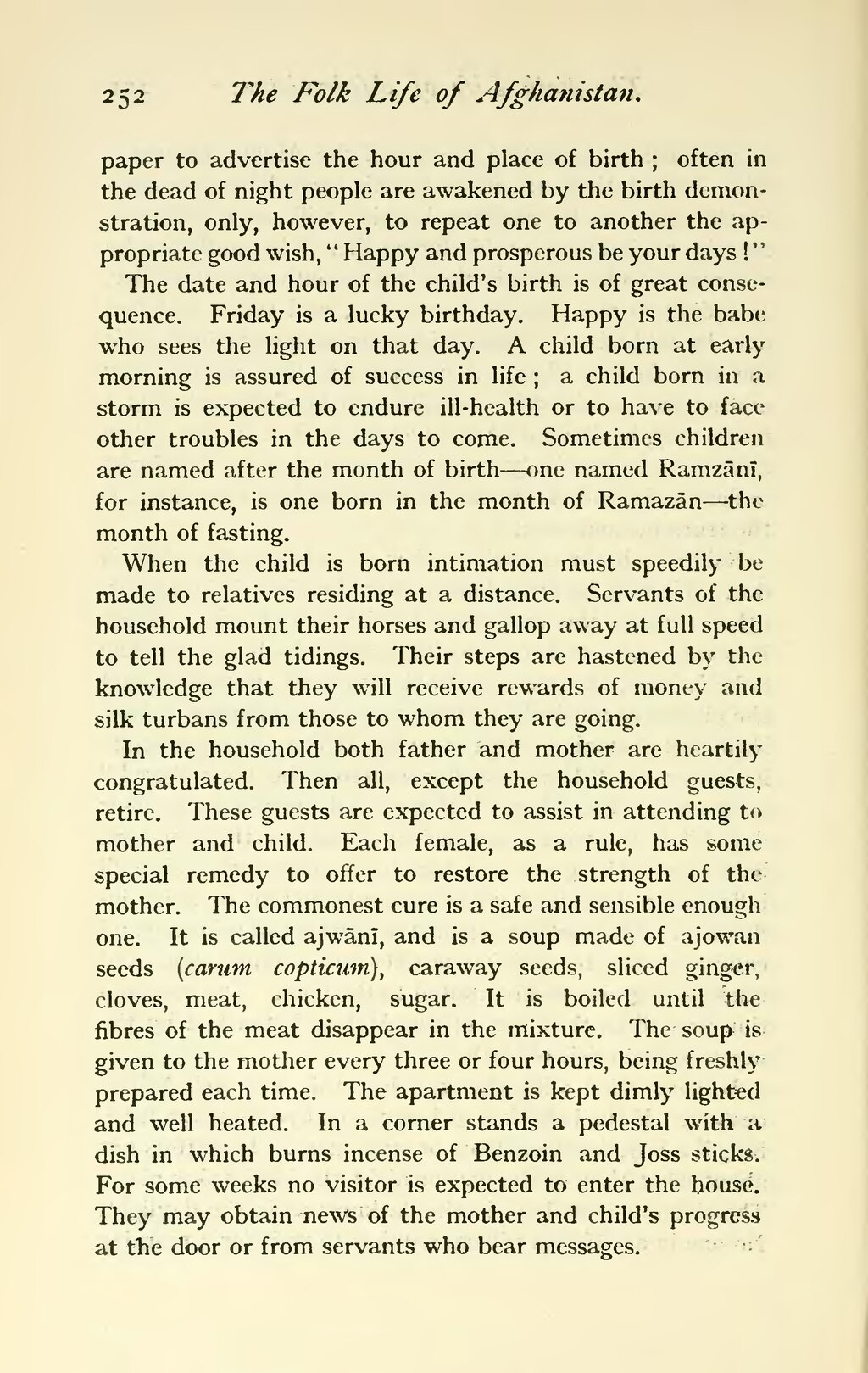paper to advertise the hour and place of birth; often in the dead of night people are awakened by the birth demonstration, only, however, to repeat one to another the appropriate good wish, "Happy and prosperous be your days!"
The date and hour of the child's birth is of great consequence. Friday is a lucky birthday. Happy is the babe who sees the light on that day. A child born at early morning is assured of success in life; a child born in a storm is expected to endure ill-health or to have to face other troubles in the days to come. Sometimes children are named after the month of birth—one named Ramzani, for instance, is one born in the month of Ramazan—the month of fasting.
When the child is born intimation must speedily be made to relatives residing at a distance. Servants of the household mount their horses and gallop away at full speed to tell the glad tidings. Their steps are hastened by the knowledge that they will receive rewards of money and silk turbans from those to whom they are going.
In the household both father and mother are heartily congratulated. Then all, except the household guests, retire. These guests are expected to assist in attending to mother and child. Each female, as a rule, has some special remedy to offer to restore the strength of the mother. The commonest cure is a safe and sensible enough one. It is called ajwānī, and is a soup made of ajowan seeds (carum copticum), caraway seeds, sliced ginger, cloves, meat, chicken, sugar. It is boiled until the fibres of the meat disappear in the mixture. The soup is given to the mother every three or four hours, being freshly prepared each time. The apartment is kept dimly lighted and well heated. In a corner stands a pedestal with a dish in which burns incense of Benzoin and Joss sticks. For some weeks no visitor is expected to enter the house. They may obtain news of the mother and child's progress at the door or from servants who bear messages.
